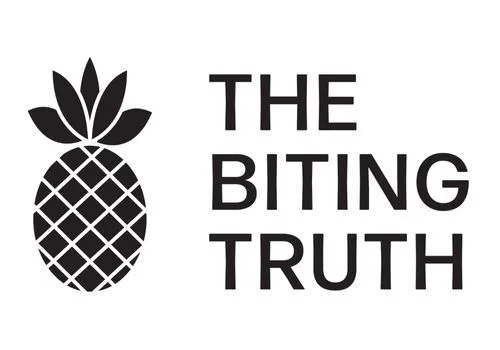
As parents it is natural to want to support the wellbeing of our children, including protection against common colds and infections.
Did you know the food kids consume, regardless of their age, plays a significant role in every aspect of their body’s functioning. Providing nourishing, well-balanced meals rich in essential nutrients, along with exposure to sunlight and regular exercise, has a positive impact on their immune system.
Below dietitian’s Anna and Alex share some of the most important nutrients that are necessary to support the functioning of your child’s immune system to keep them in tip top shape.
Vitamin A
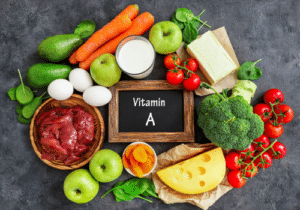
Including foods rich in Vitamin A in your child’s diet is crucial for supporting their immune system. Vitamin A plays a role in the maturation and function of immune cells, and its deficiency can lead to altered immune responses and increased susceptibility to infections. Ensure that your child receives an adequate supply of Vitamin A through sources such as lean meat, eggs, leafy greens, orange/yellow vegetables, legumes, and fruits. By incorporating these foods into their meals, you can help strengthen their immune system and reduce the risk of infections.
Some ideas on how to offer more vitamin A rich foods in your child’s diet:
- Omelette with grated carrot and finely sliced capsicum
- Add frozen spinach to meals such as spaghetti bolognese
- Hummus with vegetable sticks or wholegrain crackers
Vitamin B
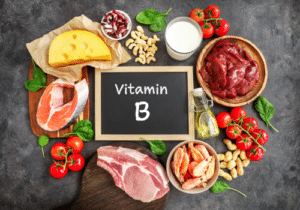
Vitamin B plays a vital role in supporting your child’s immune system by supporting their body’s first response. There are a number of different types of B vitamins that can be obtained from various food sources such as wholegrain breads and cereals, meats, fish, dairy products, eggs and green leafy vegetables.
Some ideas on how to offer more vitamin A rich foods in your child’s diet:
- Wholegrain cereals such as Weet-bix or oats
- Tinned tuna or salmon patties
- Plain greek yoghurt with fruit
Iron Rich Foods
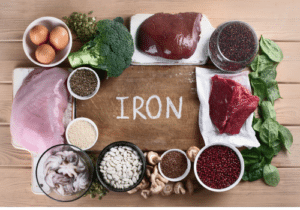
Iron plays a vital role in transporting oxygen throughout the body via the bloodstream and contributes to the body’s immune response. It is crucial for your child to meet their iron requirements to help reduce the risk of infections.
To ensure an adequate intake of iron, include foods such as meat, poultry, fish, beans, lentils, whole grains, and legumes in your child’s diet. It’s important to note that the body doesn’t absorb plant-based sources of iron as easily as it does animal sources. To enhance the absorption of iron from plant-based sources, pair them with foods that contain vitamin C.
For example, you can serve weet-bix with berries or another vitamin C rich fruit. These combinations can help optimize iron absorption for your child’s overall health and immune function.
Vitamin C

Vitamin C is renowned for its role in supporting a healthy immune system so it will hopefully come as no surprise the Vitamin C is important. It aids in various cell functions and helps create a barrier against bacteria and microorganisms that can cause illnesses. Additionally, it enhances the absorption of iron, which is another nutrient crucial for your child’s immune system, overall health, and development.
You can find Vitamin C in a variety of fruits and vegetables. Citrus fruits, mangoes, kiwifruits, tomatoes, and strawberries are excellent sources, as well as vegetables like spinach, broccoli, capsicum, and cabbage.
Zinc
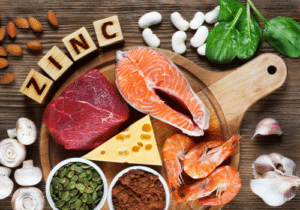
Zinc plays a crucial role in supporting your child’s antiviral defense and immune cells. It is important to ensure that your child is getting enough zinc to prevent deficiency, which can impair certain aspects of the immune response and increase susceptibility to infections.
Include zinc-rich foods in your child’s diet to meet their zinc requirements. Good sources of zinc include red meat, poultry, beans, nuts, seafood, tofu, and legumes. By incorporating these foods into their meals, you can help support your child’s immune system and promote their overall health and well-being.
Vitamin D
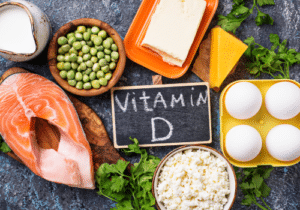
In addition to its well-known role in supporting bone health however Vitamin D also plays a crucial role in enhancing the body’s immune system.
While there are small amounts of Vitamin D naturally present in foods such as eggs, fish, and fortified toddler milk drinks, it can be challenging to obtain enough Vitamin D through diet alone. Fortunately, sunlight is the best source of Vitamin D, and living in Australia means we have an abundance of sunshine! Incorporating outdoor activities into your daily routine is a great way to ensure your child gets their share of sunshine. Encourage them to play outside on the trampoline, kick a ball in the park, or go on family walks. Not only will these activities get your child moving and active, but they will also increase their production of Vitamin D.
Remember to balance sun exposure by taking necessary precautions to protect your child’s skin from harmful UV rays, especially during peak sun hours. Applying sunscreen, wearing protective clothing, and seeking shade when necessary are essential for maintaining sun safety while reaping the benefits of Vitamin D from the outdoors.
Bottom Line
Clearly, there are many nutrients involved in supporting your child’s immune system. Remember that it is your job as a parent to decide WHAT food is offered. You are not responsible for making your child eat. Exposing your child to a healthy diet covering all food groups including fruits, veggies, nuts, grains, legumes, meat and fish is the best way you can ensure they will receive the nutrients needed to support their immune system.
If you are concerned about your child’s immunity or would like further support, speak with your doctor or book in for a 1:1 nutrition consultation here.
—
Notes
- Follow us on Instagram.
- Check out our online Toddler Feeding Program, Little Bites.
